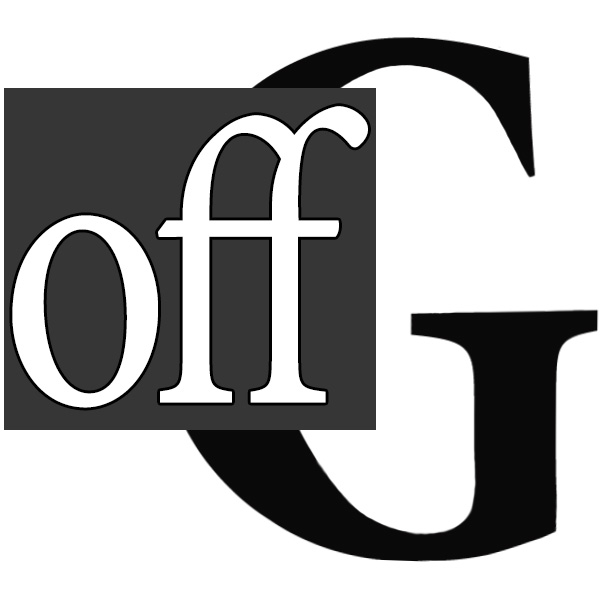“More and more people are coming to recognize Russia as the victim of a certain foreign policy of the West”
Just a week ago, on March 15 to be precise, the Belgian French-language weekly “Le Vif” carried an interview with Xavier Follebouckt, a geopolitical expert and research assistant at the University Catholique de Louvain, where he works in an interdisciplinary department dedicated to EU-Russia relations. In academic and EU diplomatic circles, Follebouckt is well known for his Russia-bashing, evident in this interview as well. To sample the unscrupulousness of the propaganda that passes for objective and unbiased scholarly analysis he does, the reader can check out any of his essays on academia.edu, for example. Here’s one such paper of his from 2014:
What makes this article worthy of note, therefore, are three things:
- The quotation from the interview “Le Vif”’s editors chose to highlight in the headline
- The fact that Follebouckt himself no longer wishes to completely ignore and/or misrepresent the growing sense among the European electorates that Russia is a victim of a foreign policy that makes no sense and which they don’t support
- The fact that “Le Vif” chose to publish the interview at all
It’s clear from a couple of remarks Follebouckt made a week ago to “Le Vif” that there’s now a body of empirical research by social scientists which shows a spreading realization among the people living in the EU zone that the West, both their governments and the media, has been indulging in an orgy of Russia-bashing while conducting a policy directly inimical to the basic existential interests and needs of the Russian people – the chief one of those being their legitimate security and economic interests.
As Follebouckt put it, a growing number of European political parties on both the right and the left are now challenging the official Western narrative on Ukraine because they have nothing to lose by doing so.
Au sein de la population européenne, la vision négative de la Russie n’est plus aussi prédominante qu’auparavant. Les opinions divergentes foisonnent et de plus en plus de gens considèrent ce pays comme une victime de la politique occidentale.
The negative view of Russia is no longer as prevalent among the European population as it was before. There’s now a proliferation of differing opinions [on the matter] and more and more people see this country as a victim of Western policy.

What’s noteworthy about this news item — and the fact that a mainstream newspaper commissioned and published it — is that “Le Vif” is considered a politically non-partisan weekly, one that doesn’t serve as a mouthpiece for any of Belgian’s political groups. The weekly comes out in Brussels every Friday and is owned by the Roulata Media Group, who also publish papers in Flemish. The Roulata Media Group also owns papers in France, Germany, the Netherlands, Slovenia, and Serbia. To learn more about them, you can check out their Internet Mission and Strategy page.
SUPPORT OFFGUARDIAN
If you enjoy OffG's content, please help us make our monthly fund-raising goal and keep the site alive.
For other ways to donate, including direct-transfer bank details click HERE.





Reading the Forbes piece by Kenneth Rapoza leads me to ask why polls haven’t been conducted in any EU country, or the US, regarding Western involvement in the Ukraine? At least I haven’t seen any. With a general election looming, it’s very important for voters to be made aware if there is any leader of the three main paries vehemently opposed to British involvement in Ukraine. From where I’m standing, it seems the main parties have decided amongst themselves not to split ranks for fear it might upset their cosy relationships with one another on subjects like invasion and war. Finding out the views of voters on Ukraine could make make things very difficult for the three main parties, by exposing the entire electoral process for the sham it has become regarding the most serious issue of our time. The opinion of the electorate on war is something the three… Read more »
Thank you for your comment, Bryan. Excellent observations about the apparent lack of public opinion polls inside Ukraine — and on Ukraine. Follebouckt’s remarks in the interview he gave to “Le Vif” last week imply that such research has indeed been carried out but that its precise results are being kept away from us — otherwise, how would he know that more and more people in the EU zone are changing their view of Russia and of Western policies towards it? Thank you also for that very revealing bit of info concerning YouGov, Peter Kellner and the woman I’ve been calling Baroness Gosh-Ashton ever since the contents of her phone conversation with the Estonian foreign minister Urmas Paet about EuroMaidan provocateurs and snipers came out a little more than a year ago now. For those who missed it when it first came out, here’s a link to the relevant YouTube… Read more »
Very interesting – and encouraging. Thank you. For anyone wanting to check out the original article or post a link to the primary source, it was actually on March 12th and can be found at: http://www.levif.be/actualite/international/de-plus-en-plus-de-gens-considerent-la-russie-comme-une-victime-de-la-politique-occidentale/article-normal-371117.html
Even if Follebouckt’s reasons are rather suspect, it’s true that more and more people in the West are beginning to see the truth. The recent focus on Crimea has been very revealing, with even the Moscow Times pointing out that Nuland is lying in her rabid BS about a ‘reign of terror’. Link at http://www.themoscowtimes.com/opinion/article/no-victoria-nuland-crimea-is-not-suffering-reign-of-terror/517433.html. Astonishingly, even the Guardian managed a balanced piece on the Crimean Tatars here: http://www.theguardian.com/world/2015/mar/17/crimean-tatars-divided-between-russian-and-ukrainian-promises. Now Forbes itself is compelled to admit that people in Crimea actually prefer living in Russia… http://www.forbes.com/sites/kenrapoza/2015/03/20/one-year-after-russia-annexed-crimea-locals-prefer-moscow-to-kiev/
A little gleam of hope…